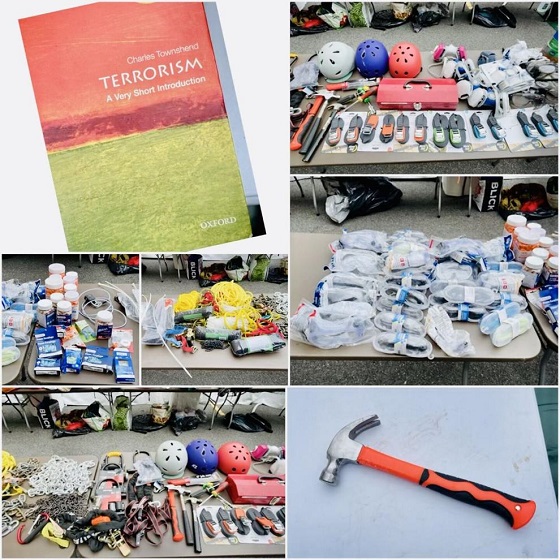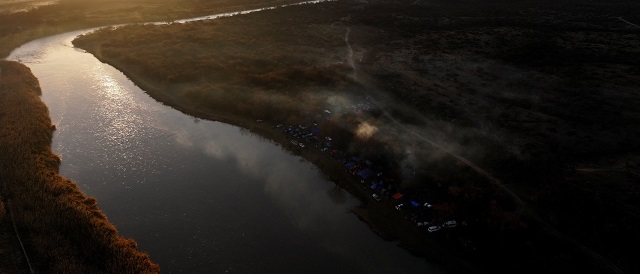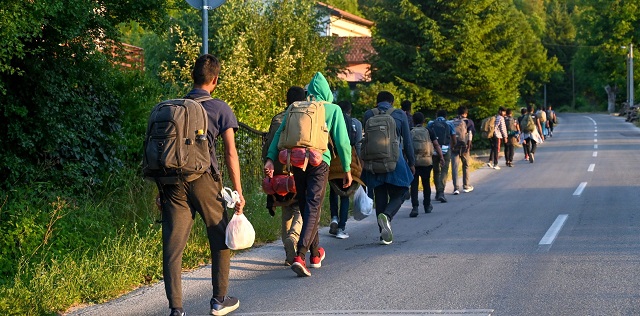Frontier Centre for Public Policy
The Worrisome Wave of Politicized Prosecutions
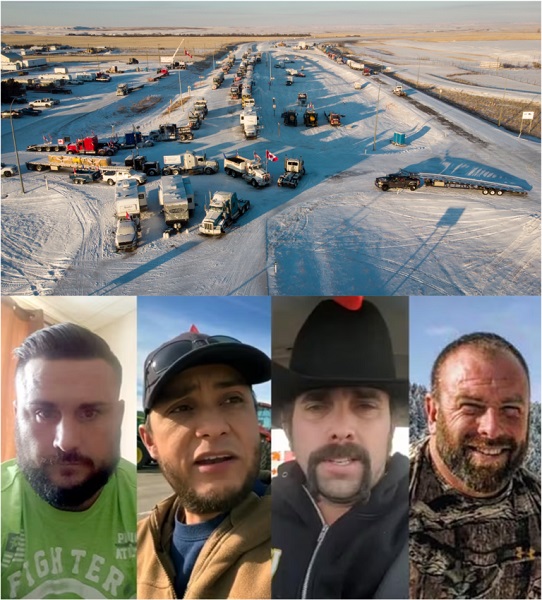
Unusual punishment: The 2022 truckers’ protest at the Coutts, Alberta border crossing (top) led to charges against four men (bottom left to right), Chris Carbert, Tony Olienick, Jerry Morin and Chris Lysak; Morin and Lysak were held in custody for almost two years while the other two are still in prison. (Sources of photos: (top) The Canadian Press/Jeff Mcintosh; (bottom) CBC)
From the C2C Journal
By Gwyn Morgan
Shaping criminal charges, bail decisions or prison sentences around an accused person’s political or religious beliefs is utterly odious – a hallmark of tinpot tyrannies and totalitarian hellholes. Such practices have no place in any constitutional nation, let alone a mature democracy that presents itself as a model to the world. But that is increasingly the situation in Canada, writes Gwyn Morgan. Comparing the treatment of protesters accused of minor infractions to those of incorrigible criminals who maim and kill, Morgan finds a yawning mismatch that suggests political motivations are increasingly a factor in today’s criminal justice system.
On January 29, 2022, a small convoy of trucks headed down to the U.S. border crossing at Coutts, Alberta to join in the nationwide protests against the Covid-19 vaccine mandate that the Justin Trudeau government had recently imposed on cross-border truckers – the very people Trudeau had previously described as “heroes” for delivering food and other essentials in the depths of the pandemic. Joined by many locals in pickup trucks and farm machinery, the truckers’ border protest turned into a full-scale blockade that would last 17 days. Just as it appeared to be settling into an extended stalemate, heavily armed police tactical teams swooped down upon several locations and arrested 14 protesters, charging four with the ominous crimes of conspiracy to commit murder (of police officers), mischief, a raft of weapons offences and uttering threats. These were bewildering accusations given the overall context of the event.
As the blockade almost instantly dissolved given that none of the protesters wanted to be linked to potentially violent offenders, the four men – Chris Lysak, Jerry Morin, Chris Carbert and Tony Olienick – were locked away. Lysak and Morin spent 723 days – nearly two years – in pre-trial custody, 74 of which Morin was kept in solitary confinement. Finally, after their new lawyer, Daniel Song, filed a Charter of Rights and Freedoms application demanding that the courts re-examine the case, the Crown suddenly accepted a plea deal on much lesser firearms charges. One month ago – on February 6 – Morin and Lysak were abruptly released. But they had already served the equivalent of a typical sentence for a serious crime in Canada – manslaughter or assault, say. Hard-working tradesmen with young families, Morin and Lysak will never get those two years back. Carbert and Olienick remain in prison and still face the full raft of charges; their trial is to begin in May.
Contrast this with the recent case of a mother and daughter – Carolann Robillard and Sara Miller, 11 – who were fatally stabbed in a horrific random attack outside an Edmonton school. Their accused killer, Muorater Arkangelo Mashar, had a long criminal record of assaults, assault with a weapon and robbery; he had been released from custody 18 days prior to the murders. Such events are no longer exceptions in Canada’s criminal justice system. They’re not cases of someone “falling through the cracks” – getting out due to a glitch or individual act of incompetence. They are routine. This is how things are now done in Canada. Vancouver police, for example, catch and release the same criminal offenders over and over, sometimes close to 100 times, because they always make bail.
By contrast, the four Coutts protesters were repeatedly denied bail despite having no criminal records. For this reason, social media users raised the possibility that they were, in effect, political prisoners being persecuted for having stood up so defiantly against the vaccine mandate and embarrassing Trudeau. Just a week or so following their arrests, over 3,000 km away on Parliament Hill, the Trudeau government moved against a peaceful protest that was breaking no significant laws other than, possibly, some municipal noise ordnances and parking bylaws. Police arrested and incarcerated four prominent protesters whom there was no credible basis to imprison and hold without bail. Of the four, Chris Barber was released within a day. Pat King and George Billings, however, were denied bail despite facing only minor mischief charges; they would spend months in jail. Billings eventually pled guilty to one charge and was released, while King’s trial has yet to begin.

Political prisoners: At the Freedom Convoy protest in Ottawa (top), police arrested (bottom left to right) Chris Barber, Pat King and George Billings; Barber was released but King and Billings were denied bail despite facing only minor mischief charges. (Sources of photos: (top) Maksim Sokolov (Maxergon), licensed under CC BY-SA 4.0; (bottom left) Public Order Emergency Commission; (bottom middle) Calgary Herald; (bottom right) The South Peace News)
COVID-19
Peckford: Hallelujah! Supreme Court of Canada to hear Newfoundland and Labrador charter case

From the Frontier Centre for Public Policy
This will allow the SCC to address novel questions about the scope of mobility rights in Canada and the extent to which the government can limit Canadians’ rights to move freely around the country.
In what can only be considered a surprise move the SCC has agreed to hear an appeal of a decision of the Supreme Court of Newfoundland. Surprise because the Newfoundland and Labrador Court of Appeal refused to hear the appeal of this exact case.
For the Appeal Court it was the all too familiar excuse of the whole thing being too moot for the Court.
But now the SCC has agreed to hear the case. The parties, Kimberly Taylor and The Canadian Civil Liberties Association appealed to the court.
Here is a copy of the Civil Liberties Press Release dated April 26, 2024:
“Arbitrary travel restrictions infringe on the mobility rights of Canadians. CCLA’s challenge of Newfoundland government’s Bill 38 will continue before the Supreme Court of Canada (SCC), so that Canadians have clear, predictable, and stable answers to fundamental questions affecting their basic mobility rights.”
Back in May 2020, CCLA challenged the constitutionality of the Newfoundland government’s Bill 38 before the province’s Supreme Court. This Bill provided for a travel ban between provinces and other restrictive measures in the context of the COVID-19 pandemic. CCLA asked the Court to declare Bill 38 in violation of s.6 (mobility rights), as well as other Charter rights. CCLA also argued that the law could not be saved by s.1, which says that limits on rights must be reasonable and demonstrably justified. In September of 2020, the province’s Supreme Court found that the travel ban did violate the s.6 Charter right to mobility, but that such infringement could be justified under s.1. CCLA pursued this case before the Newfoundland and Labrador Court of Appeal. In August of 2023, the Court of Appeal refused to settle the merits of the appeal under the motive that it was moot, since the ban had been lifted. This was done despite all the parties urging the Court of Appeal to decide the appeal on the merits.
CCLA is pleased to learn that the SCC just granted its application seeking leave to appeal in this case. This will allow the SCC to address novel questions about the scope of mobility rights in Canada and the extent to which the government can limit Canadians’ rights to move freely around the country. CCLA is grateful for the excellent pro bono work of Paul Pape, Shantona Chaudhury and Mitchell McGowan from Pape Chaudry LLP in this file.”
Like the Association I am pleased that the highest court is going to hear the case. One can only assume that it will not just issue a silly moot decision given that they could have let the Court of Appeal decision of Newfoundland stand and not hear the case.
I hope the highest court considers the following given it is high time for the Constitution of This Country to be fairly applied and interpreted as written.
Courts have not the power to rewrite this sacred document. They are not omnipotent. That is for the people through its elected representatives as expressed in Section 38 of the Constitution Act 1982 in which the Charter is located—the Amending Formula.
The intent of Section 1 Of the Charter was that it could only be applied in a war, insurrection, the state being threatened circumstance. As one of the First Ministers involved and whose signature is on the original Patriation Agreement I submit this point of view was what was operative at the time of the construction of this section. All remaining First Ministers whose names are on that document are no longer with us. Sadly, no court has called me to provide my view.
This intent is clear In Section 4 (2) of the Charter:
“In time of real or apprehended war, invasion or insurrection, a House of Commons may be continued by Parliament and a legislative assembly may be continued by the legislature beyond five years if such continuation is not opposed by the votes of more than one-third of the members of the House of Commons or the legislative assembly, as the case may be.”
So, decisions that have been made concerning the Charter should only be made in this context. Numerous court deliberations here and in many western jurisdictions have considered intent in determining the legitimacy of legislation. This is not novel or new.
Hence, a glaring, fundamental mistake has occurred in interpreting our Charter. The blatant omission of considering the opening words of the Charter in any interpretation of legislation by the Courts is an abuse of the Charter, our Constitution. Where is the power provided the courts to engage is such omission? Those words are:
“Whereas Canada is founded upon principles that recognize the supremacy of God and the rule of law:”
The one reference of which I am aware in the Courts literature to any consideration of the opening words relating to God was by an Alberta Judge in a lower court foolishly indicated that the creators of the words did not identify God as being a Christian God. All the creators, the First Ministers, were Christians —that’s all. What an insult to our history and traditions and the authors?
And this has been allowed to stand?
And what about the rule of law? Little if anything has been done in considering and interpreting this point.
As for Section 1 itself of the Charter. If one can get past the previous points, which is impossible, but let’s speculate: the court in question in Newfoundland, like the courts across the land, have disfigured, misinterpreted the wording of this section —-
Rights and freedoms in Canada
The Canadian Charter of Rights and Freedoms guarantees the rights and freedoms set out in it subject only to such reasonable limits prescribed by law as can be demonstrably justified in a free and democratic society.
What is of crucial importance is ‘demonstrably justify ‘and a free and democratic society ‘—-is it not? Many try and evade confronting these concepts by emphasizing ‘reasonable ‘. But ‘reasonable ‘is qualified, if you will, with ‘as can be demonstrably justified ‘and ‘in a free and democratic society.’ This was deliberate by the creators and authors of this section.
So, as we all know such reasonable demonstration would be a cost benefit analysis, a tool used frequently by Government in considering new policies or programs —and this case especially when sacred rights enshrined in the constitution were to be taken way!!! Yet, there was none! And what about the Provincial Emergency Management organizations that were already established in all the provinces with immediate expertise. Were they consulted? Not one!
No such attempt was made, and the Governments did not conduct even a cursory cost benefit review and the courts eagerly accepted the one-sided Government narrative. Yet experts like Lt. Colonel David Redman, who had been involved in Emergency Management and had written extensively on it were never consulted!
And ‘free and democratic society? Was there any meaningful engagement of the Parliament of Canada or the Legislative Assemblies —-not really, ——only to delegate power to unelected bureaucrats and relieve the politicians of direct responsibility. Where were the Parliamentary Committees? The sober consideration of all points of view in an open public session? Of independent science? Does not free and democratic society entail such deliberations?
And to those courts / governments who talk about little time—in this Newfoundland case it was 6 months before The Supreme Court of the Province ruled and 15 months for the Court of Appeal to issue a non-decision! So much for serving the people!
As for the concept of ‘mootness ‘that has been most dramatically used by the Federal Court and the Federal Court of Appeal and The Court of Appeal in Newfoundland? This is a construct of the court not the Constitution.
It denies a citizen the right to know whether a government action to which a citizen was subjected violates the Charter. Should a court idea of mootness, refusing to rule on whether a government action of only months before overruling the people’s right to know if their rights and freedoms were violated? Is this not the role of the Court? To protect the rights and freedoms of the citizens from Government overreach? That was and is the whole point of the Charter.
Whether the Government action is presently operative or not should be irrelevant, especially when millions of citizens were involved and especially when it involved rights and freedoms protected under the Charter, our Constitution. There may be a role for mootness if a frivolous matter is established but by any measure what we are discussing is anything but a frivolous matter, even though The Newfoundland Court of Appeal in calling the whole thing ‘moot ‘had the gall to find the Government’s action of denying rights ‘fleeting.’ Courts have abdicated their solemn responsibilities to the people in the exaggerated use of such Court constructed procedures.
So the highest court can go back to ‘first principles’, and examine intent and the opening words of the Charter and place them in full context in any interpretation of the Charter. If this were done then Section 1 of the Charter would not even be in play. Constructing a hypothetical i.e. considering Section 1 of the Charter during the so called ‘covid emergency’, well, even if we do, the Government and Court reasoning would have failed as demonstrated above.
There is an opportunity through this case as well as the one in which I am involved for our highest court to get it right——to return to the full constitution and re-establish the ‘supremacy of God and the rule of law, ‘the legitimate role of Parliament, to the plain meaning of demonstrably justify, and the importance of intent in interpreting our Charter.
Is the Supreme Court of Canada up to the challenge?
Will our Constitution, our democracy be restored?
The Honourable A. Brian Peckford P.C. is the last living First Minister who helped craft the Canadian Charter of Rights
Watch – Leaders on the Frontier: Brian Peckford on Saving Canada’s Democracy | Frontier Centre For Public Policy (fcpp.org) January 20, 2022
Frontier Centre for Public Policy
How much do today’s immigrants help Canada?
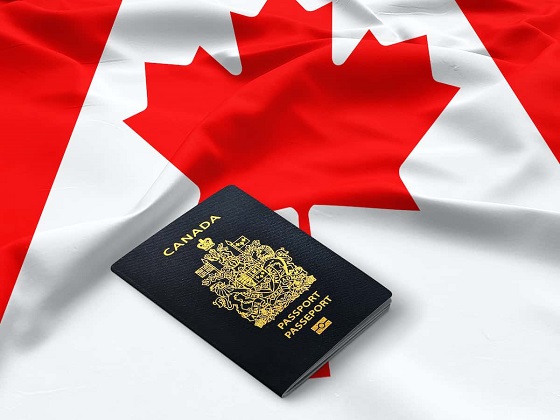
From the Frontier Centre for Public Policy
Newly arriving immigrants require housing, infrastructure and services right away. But even including other construction workers with the 2 percent who are qualified, working-age artisans, immigrants don’t come close to building the housing they occupy. Along with paying taxes to support new arrivals, oppressive housing and living costs then deter procreation for many would-be parents in the existing population.
The relationship between GDP, productivity, and immigration
It is almost universally accepted that Canada needs immigration and the corresponding population increase to keep the economy going. That is how experts say we are supposed to get economic growth along with improvements in productivity and higher per capita GDP.
But how much of that is true?
First, GDP as a measure of economic activity and national prosperity has limitations. Adjusted for both inflation and the increase in Canada’s population, per capita GDP was in free fall in 2022 and 2023—at minus 2.6 and minus 3.9 respectively.
GDP says nothing about its distribution among the population. Inflation enriches those who own housing and other hard assets, but leaves behind those who do not own them. Notably, with demand overwhelming supply, immigrants’ housing needs and other requirements generate inflation and widen the gap between rich and poor.
It is also necessary to consider what GDP comprises. There is a rough and ready distinction between investment and consumption although the distinction is fuzzy. Broadly speaking, new and more efficient machinery improve productivity, enabling workers to deliver more value for the time they spend working. The consumption part of GDP includes a long list of activities necessary for sustaining life—everything from buying groceries to fixing broken windows, retailing goods made in China, and maintaining the superstructure of government.
Conventional wisdom is that immigration is necessary to make up for the decline in the home-grown population resulting from the birth rate below replacement. But that represents a vicious circle. Much of Canada’s GDP involves building homes and infrastructure, and supporting immigrants—all consumption components. Newly arriving immigrants require housing, infrastructure and services right away. But even including other construction workers with the 2 percent who are qualified, working-age artisans, immigrants don’t come close to building the housing they occupy. Along with paying taxes to support new arrivals, oppressive housing and living costs then deter procreation for many would-be parents in the existing population.
Many employers and politicians promote immigration. That is because immigrants tend to be more industrious and reliable than young home-grown Canadians. Immigrants and their children are generally prepared to work at current pay rates without clock-watching. And there is less pressure to install labour-saving equipment when a pool of people is ready and willing to work for what they get paid.
It’s also necessary to consider that for decades, technology, robots, and more efficient use of labour have been eliminating jobs. Some estimates have it that up to a third of all current jobs will disappear over the next 10 to 15 years. All this said, I look to history and other countries for how changes in population impact productivity and community well-being. In recorded history, the biggest advances in real per capita income occurred in Europe after the bubonic plague killed about half the population between 1347 and 1352. The shortage of labour made workers much more valuable. Feudalism ended and there was a huge surge in wages rates and women’s rights.
In recent times, the population of Japan has been expanding only slowly, and is declining now. In 2023, business capital investments hit a record high at US $223 billion, up 17 percent from the previous year. The question now is whether productivity gains will be enough to sustain its ageing and shrinking population. For Canada, in contrast, per capita business investment, adjusted for inflation and population, has been declining and was sharply lower in 2022-23.
There is another problem. Too many immigrants expect to take advantage of our generous welfare. It may cost $1,000 per person per month to support an immigrant who does not immediately get a job. That must be many times more than it costs to keep that person in a refugee camp.
Of course, Canada has the duty to take in refugees at risk of persecution. And, as Singapore does, employers should be able to hire immigrants for specific top-end jobs where Canada does not have the home-grown expertise.
It is no long-term answer to support people in camps. Troubled countries—Haiti, for example—need security and business investment to enable their self reliance. Countries like Canada need to generate their own wealth to make that possible and not just for the good of our own citizens. This requires diverting GDP back to the non-residential business investment that is the lifeblood of a healthy and sustainable economy.
Colin Alexander’s degrees include Politics, Philosophy, and Economics from Oxford. His latest book is Justice on Trial.
-
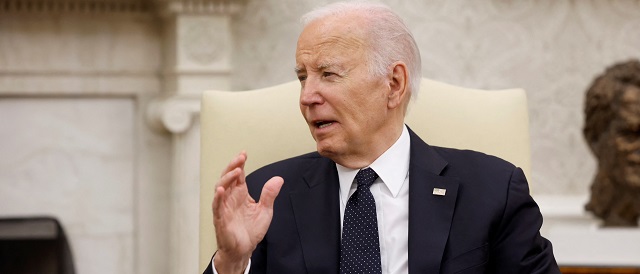
 Censorship Industrial Complex1 day ago
Censorship Industrial Complex1 day agoBiden Agencies Have Resumed Censorship Collaboration With Big Tech, Dem Senate Intel Chair Says
-
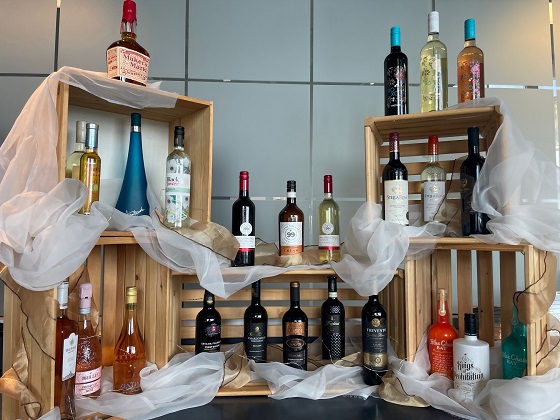
 Alberta Sports Hall of Fame and Museum1 day ago
Alberta Sports Hall of Fame and Museum1 day agoTHE HALFTIME REPORT News from the Alberta Sports Hall of Fame
-
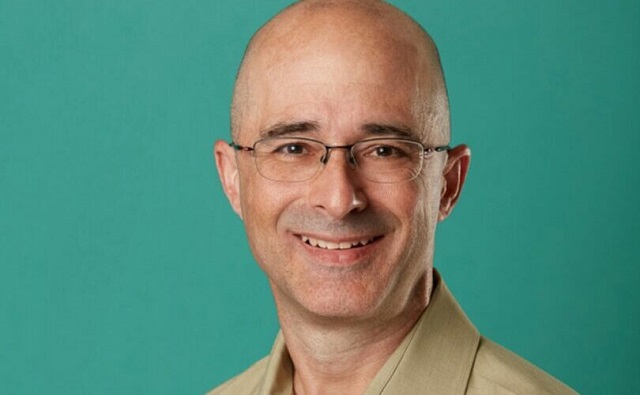
 COVID-191 day ago
COVID-191 day agoQuebec microbiology professor fired for his public opposition to COVID shots
-
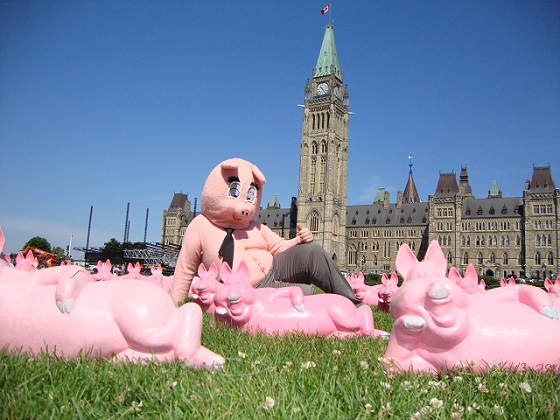
 National1 day ago
National1 day agoTaxpayers Federation presents Teddy Waste Awards for worst government waste
-

 COVID-191 day ago
COVID-191 day agoElon Musk’s X will help fund COVID shot critic’s ongoing legal battle against Canadian university
-

 COVID-1921 hours ago
COVID-1921 hours agoAstraZeneca withdraws COVID vaccines worldwide amid lawsuits alleging severe harm
-

 espionage19 hours ago
espionage19 hours agoBiden expands government’s power to spy on Americans without a warrant
-

 Opinion2 days ago
Opinion2 days agoBoy Scouts of America changes name to ‘Scouting America’ to be ‘more inclusive’






